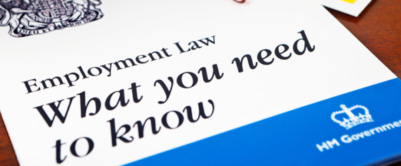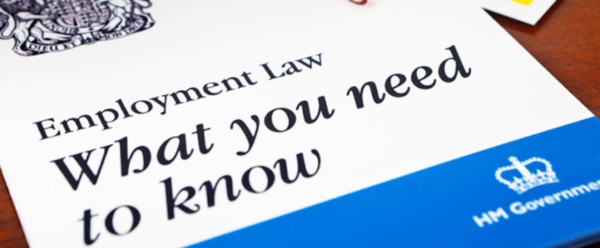Between the 9 and 15 October 2023, Baby Loss Awareness Week is marked.

Between the 9 and 15 October 2023, Baby Loss Awareness Week is marked. This week is a time for those affected to come together in remembrance of their lost loved ones and raising awareness of the thousands affected by baby loss each year.
Workplace support
How an individual deals with baby loss will be unique to them, shaped by their journey to becoming pregnant and the circumstances of the loss. Because of this, it is important not to treat all those impacted by this the same, but instead treat them as individuals and be guided in how they wish to be supported.
That being said, there are some basic measures employers can put in place to support their staff, such as making counselling available to employees, either via an Employee Assistance Programme (EAP) provider or directly with a local counselling service.
Employers should also ensure their managers are well trained in dealing with these conversations sensitively. They may get actively involved in the delivery of support, or act as a signpost to resources that either the organisation or external sources offer.


Parental Bereavement Leave
Parental Bereavement Leave and Pay is available to parents whose child dies under the age of 18, or is stillborn after 24 weeks. This applies regardless of the employee’s length of service.
Parental Bereavement Leave can be taken as either:
- two weeks together
- two separate weeks
- one week alone
The leave can start on or after the death or stillbirth and must finish within 56 weeks of the death or stillbirth. If Parental Bereavement Leave is interrupted by another type of statutory leave, such as a pre-arranged period of Shared Parental Leave, any remaining Parental Bereavement Leave can be taken after the other leave has ended.
Maternity Leave
In cases of stillbirth after 24 weeks or where the baby was born living at any point in the pregnancy, both Ordinary and Additional Maternity Leave is still available. This means the employee may take the full 52 weeks of leave they are entitled to, starting from the day after the birth.
However, they may wish to bring forward their return date (or they may not). The normal notice rules for altering a return date from Maternity Leave will apply (ie 28 days written notice), although employers may use their discretion to waive this, given the circumstances of the situation.


Paternity Leave
Paternity is also available where the baby is stillborn after 24 weeks, or born living at any point in the pregnancy.
Shared Parental Leave
To take this leave, it must have been booked before the baby died, which will have involved the curtailing of maternity leave in order to ‘share’ leave. As such, it is unlikely that this leave will have been arranged where the baby is lost early on in the pregnancy. Employers may therefore decide to use their discretion to allow some other form of leave to be taken. Where the employer has exercised their discretion to do this, statutory shared parental leave pay will not be payable.
Sick Leave
Losing a child can be devastating, and the employee may be too unwell to work. If this is the case, the usual organisational sickness rules will apply, i.e. sick pay and certification.
A note on miscarriage
Under the Equality Act 2010, both sex and pregnancy and maternity are protected characteristics as under section 4. This protection continues for two weeks after a miscarriage.

Employment Law Case:
In Stokes v Glenham Property Management Ltd, the claimant lost her baby via miscarriage. She was absent from work on pre-booked annual leave, and was then signed off work before returning to work, taking her over two weeks since the miscarriage.
Shortly after, the claimant was dismissed via a letter, stating that she was “not fit to complete [your] role” due to absence, leading to a claim of discrimination. Finding for the claimant, the tribunal recognised that whilst the two-week time limit had ended at the point of dismissal, nevertheless this was sex discrimination by reason of dismissal due to the miscarriage, which is unique to the female sex.
YOUR OUTSOURCED HUMAN RESOURCES DEPARTMENT.
For further information on any of the HR subjects we provide, please click the heading below:





























